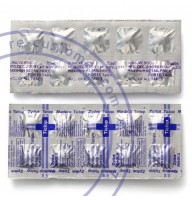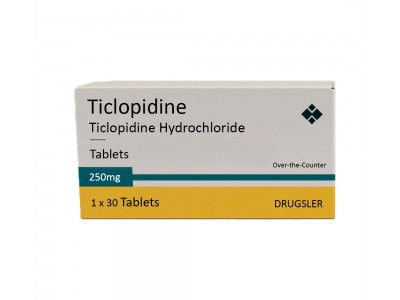Ticlopidine (brand name Ticlid) is primarily used as an antiplatelet medication. Its main therapeutic use is to prevent blood clots from forming in individuals who are at risk of thrombotic events. Specifically, ticlopidine is prescribed in the following situations:
Stroke Prevention: Ticlopidine is used to reduce the risk of stroke in patients who have had a transient ischemic attack (TIA) or a previous stroke caused by a blood clot. It helps by preventing platelets from clumping together and forming clots that could block blood flow to the brain.
Coronary Artery Disease: It is also used to prevent clot formation in patients with coronary artery disease who have undergone procedures such as coronary artery stenting or balloon angioplasty. These procedures can leave the arteries vulnerable to clot formation, which ticlopidine helps to mitigate.
Peripheral Arterial Disease: In individuals with peripheral arterial disease (PAD), ticlopidine may be prescribed to reduce the risk of blood clots that could lead to complications such as limb ischemia or peripheral artery thrombosis.
Ticlopidine works by blocking the binding of adenosine diphosphate (ADP) to its platelet receptor, thereby inhibiting platelet activation and aggregation. This action helps to prevent the formation of blood clots in arteries, which can lead to serious conditions such as stroke or myocardial infarction.
While effective, ticlopidine is not typically used as a first-line treatment due to its potential for serious side effects, such as agranulocytosis (severe decrease in white blood cell count) and other hematologic disorders. Instead, it is often reserved for patients who cannot tolerate other antiplatelet medications or who have not responded adequately to them.
As with any medication, the decision to prescribe ticlopidine should consider the patient's overall health status, risk factors, and potential interactions with other medications. Regular monitoring of blood counts and liver function may be necessary during treatment to detect and manage any adverse effects promptly.f

